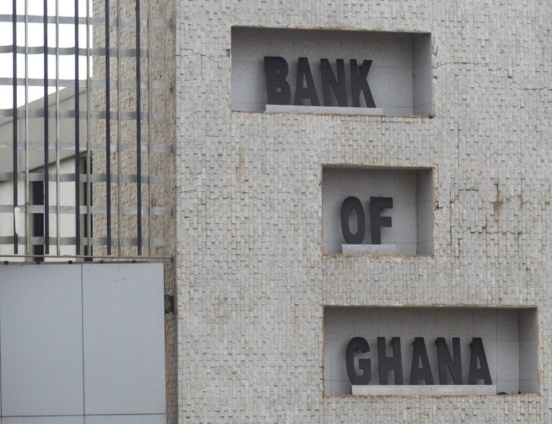Banks profit for the first half of this year went up by about 15.5% to ¢1.9 billion.
However, the earnings is lower than the 36.3% growth registered during the same period last year.
According to the latest Banking Sector Report, the decline in profit levels was mainly due to sharp increases in the three cost elements.
The Central Bank however said the industry remained sufficiently profitable during the first half of 2020 although increases in interest expenses, operational costs and higher loan loss provisions constrained profitability growth.
Growth in net interest income also marginally declined to 16.5% in the first six months of this year.
This is attributed to a much higher increase in interest expenses on the back of increased term deposits and relatively more expensive borrowings.
Interest income, on the other hand, grew by 13.7%, a much lower incremental change than the 9.4 percent a year ago. This partially offset the increase in interest expenses.
However, despite the slowdown in credit growth during the period which affected interest income from loans, increases in investments sustained the overall interest income of banks.
Also, net fees and commissions grew strongly at 10.3% from 3.7% over the period due partly to more usage of electronic banking products and services in the wake of the Covid-19 pandemic.
Operating expenses also shot up by 12.9% during the first half of 2020 from 7.6% a year ago.
This was due to the sharp 17.3% increase in banks’ other operational costs attributed largely to costs associated with the safety protocols and containment measures of Covid-19 as well as activation of Business Continuity Plans during the period.
Return on Assets and Return on Equity Return
Return on Equity which is very dear to the heart of shareholders moderated to 20.6% at end-June 2020 from 21.2% at end-June 2019, largely due to the slowdown in profit growth during half year-2020.
Similarly, Return on Assets (ROA) also dipped marginally during the period to 4.1% from 4.4%.
The profitability indicators however remain strong despite the dip, with the Central Bank concluding that the industry remained profitable despite the pandemic-induced increases in costs.
Latest Stories
-
Let’s prioritize research quality in higher education institutions for industrial growth-Prof. Nathaniel Boso
7 hours -
Herman Suede is set to release ‘How Dare You’ on April 24
11 hours -
Heal KATH: Kuapa Kokoo, Association of Garages donate 120k to support project
11 hours -
KNUST signs MOU with Valco Trust Fund, Bekwai Municipal Hospital to build student hostel
11 hours -
The influence Ronaldo has on people, Cadman Yamoah will have same on the next generation – Coach Goodwin
12 hours -
Gender Advocate Emelia Naa Ayeley Aryee Wins prestigious Merck Foundation Awards
13 hours -
South Africa bursary scandal suspects granted bail
13 hours -
Ecobank successfully repays $500m Eurobond due April 18
13 hours -
Re: Doe Adjaho, Torgbui Samlafo IV, call for Unity among Paramountcies in Anlo
13 hours -
Extortion and kidnap – a deadly journey across Mexico into the US
13 hours -
Rihanna says fashion has helped her personal ‘rediscovery’ after having children
14 hours -
Development Bank Ghana targets GH¢1bn funding for commercial banks in 2024
14 hours -
Shatta Movement apologises to Ghana Society of the Physically Disabled after backlash
15 hours -
Sammy Gyamfi writes: Tema-Mpakadan Railway Project; A railway line to nowhere
15 hours -
Bright Simons: Is the World Bank saving or harming Ghana?
15 hours

